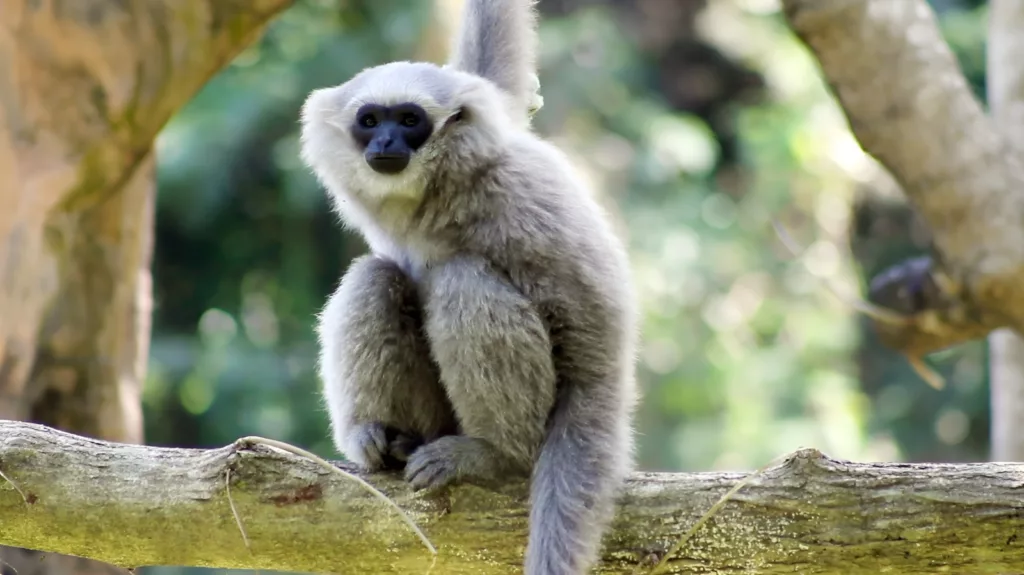International Gibbon Day, celebrated every year on October 24th. Is an opportunity for the world to better understand, honor, and preserve one of the most intriguing primates in tropical forests: the Gibbon. In this article, we will explore the importance of Gibbons in forest ecosystems and efforts to protect and conserve this species.

Why are Gibbon Important?
Forest apes known for their beautiful singing voices and agile leaps from tree to tree are Gibbons. They play an integral role in the Southeast Asian tropical forest ecosystem. Additionally they aiding in plant seed dispersal and maintaining ecological balance. Gibbons are often regarded as “forest engineers” for their role in shaping forest structures and promoting plant propagation.
Beyond ecology, Gibbons also hold cultural significance. Local communities often view Gibbons as spiritual or mythological symbols, and it is crucial to preserve these cultural beliefs.
Threats to Gibbon
Despite their ecological and cultural importance, Gibbons face serious threats, primarily due to habitat loss caused by deforestation, hunting, illegal trade, and climate change. Many Gibbon species are now endangered or at risk.
Raising Awareness with International Gibbon Day
International Gibbon Day is a global effort to raise awareness about the presence and challenges faced by Gibbons. In observance of this day, organizations globally organize various activities such as seminars, workshops, social media campaigns, and educational events to inform the public about the importance of conserving Gibbons and the forests they inhabit.
Contributing to Gibbon Conservation
There are several ways to contribute to Gibbon conservation and the preservation of their habitats:
- Support Conservation Organizations: Additionally, you can provide support to organizations that focus on Gibbon and habitat conservation
- Education: Share information about Gibbons and International Gibbon Day with friends, family, and on your social media platforms.
- Reduce Your Ecological Footprint: Decrease your ecological footprint by reducing paper usage. You can also choosing sustainable wood products, and supporting carbon emission reduction efforts.
- To further the cause of Sustainable Ecotourism: Support sustainable ecotourism that generates income for local communities and protects Gibbon habitats.
International Gibbon Day is an important opportunity to contemplate the significance of Gibbon conservation and the tropical forest ecosystems. Moreover, with global support, we can help ensure that the beautiful voices of Gibbons continue to grace our forests for future generations. Additionally, a special acknowledgment goes to the role of Taman Safari Bali in the preservation of Gibbons and tropical forests. These are inseparable components in safeguarding the sustainability of this species.






